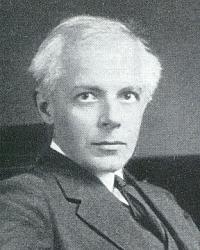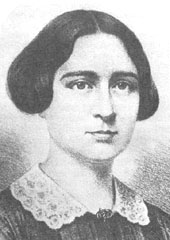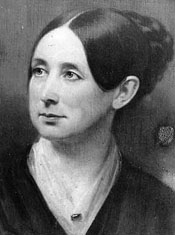Abbot, Francis Ellingwood
Francis Ellingwood Abbot (November 6, 1836-October 23, 1903), a founder of the Free Religious Association and first editor of the radical journal, the Index, developed
Francis Ellingwood Abbot (November 6, 1836-October 23, 1903), a founder of the Free Religious Association and first editor of the radical journal, the Index, developed
The journalist, historian, novelist, Henry Brooks Adams ( February 16, 1838-March 27, 1918) was the son of Civil War diplomat Charles Francis Adams and Abigail
Charles Francis Adams Jr. (May 27, 1835-May 20, 1915) was a lawyer, writer, railroad regulator, arbitrator, journalist, railroad president, and soldier. Reared a Unitarian, his
Charles Francis Adams, Sr. (August 18, 1807-November 21, 1886), a lifelong Unitarian, was an antislavery politician who later opposed radical reconstruction of the South. As
Hannah Adams (Oct. 2, 1755-Dec. 15, 1831) born in Medfield MA, she was the first American, man or woman, known to attempt to support herself
Hannah Adams (October 2, 1755-December 15, 1831), an early American historian and pioneer in the field of comparative religion, was also the first American author
James Luther Adams (November 12, 1901-July 26, 1994) was a Unitarian parish minister, social activist, journal editor, distinguished scholar, translator and editor of major German
John Adams (October 30, 1735-July 4, 1826), first vice-president and second president of the United States, was a leader of the American Revolution, diplomat, and
John Quincy Adams (July 11, 1767-February 23, 1848) spent most of his youth and adult life in public service to the United States, as senator,
Peter Charadon Brooks Adams (June 24, 1848-February 14,1927) was a lawyer, historian, and writer, who served as an informal adviser to President Theodore Roosevelt. Although
Elizabeth Cabot Cary Agassiz (December 5, 1822-June 27, 1907) was an early advocate for the education of women. However, she was conservative about women’s rights.
Amos Bronson Alcott (November 29, 1799-March 4, 1888), educator, philosopher, utopian, and visionary, ran the progressive Temple School in Boston, founded the Fruitlands community in
Horatio Alger, Jr. (January 13, 1832-July 18, 1899), briefly a Unitarian minister, was a popular nineteenth-century author of juvenile fiction. His “rags to riches” stories
Johannes Abraham Christoffel Fagginger Auer (August 6, 1882-March 3, 1964) was a Unitarian minister, author, professor of Church History and of the Philosophy of Religion
Edwin Burdette Backus (December 27, 1888-July 7, 1955), a Unitarian minister and proponent of humanism, had a popular radio ministry. He was a notable supporter

Béla Bartók (March 25, 1881-September 26, 1945), the greatest Hungarian composer, was one of the most significant musicians of the twentieth century. He shared with
John Relly Beard (August 4, 1800-November 22, 1876), British educational reformer and minister, was a militant exponent and populariser of mid-Victorian Unitarianism. His most enduring
Henry Whitney Bellows (June 11, 1814-January 30, 1882) was minister of the First Congregational Church of New York City (now the Unitarian Church of All
Henry Bergh (August 29, 1811-March 12, 1888) was the founder of the American Society for the Prevention of Cruelty to Animals (ASPCA) and was instrumental
Leon Milton Birkhead (April 28, 1885-December 1, 1954), a controversial Methodist and Unitarian minister, achieved national prominence in the 1940s as director of the Friends

Antoinette Louisa Brown Blackwell (May 20, 1825-November 5, 1921), a women’s rights activist and social reformer, was the first American woman to be ordained as
Elizabeth Blackwell (February 23, 1821-May 31, 1910) was the first woman to earn a degree from medical school in the United States and the first
Harriot Stanton Blatch (January 20, 1856-November 20, 1940) was a leader in the woman suffrage movement, a writer and an advocate for labor reform. She
Sir Adrian Cedric Boult (April 8, 1889-February 22, 1983) was one of the foremost British conductors of his time. Well-known for his advocacy and performance
George Bradburn (March 4, 1806-July 26, 1880), antislavery politician, was a journalist, lecturer, and Unitarian minister. He was a friend and co-worker in the abolitionist
Franklin Bradley (February 2, 1831 – May 3, 1909) was a Non-Subscribing Presbyterian minister in Northern Ireland and England and the first minister to Unitarians
Brook Farm, a celebrated nineteenth-century New England utopian community, was founded by Unitarian minister George Ripley and other progressive, Transcendentalist Unitarians, to be, in Ripley’s
Florence Buck (July 19, 1860-October 12, 1925) was a Unitarian minister at a time when women ministers were uncommon and a leader in the development
Celia Burleigh (September 18, 1826-July 25, 1875) was ordained at Brooklyn, Connecticut, on October 5, 1871, the first woman to enter Unitarian ministry. Had this
Harold Hitz Burton (June 22, 1888-October 28, 1964) was a Unitarian layman, lawyer, and politician who served as Moderator of the American Unitarian Association (AUA).
John Caldwell Calhoun (March 18, 1782-March 31, 1850) was a United States representative, senator, secretary of war, secretary of state, and vice president. A political
Angus de Mille Cameron (June 9, 1913-November 23, 1996) was one of a small group of Canadian ministers whose introduction into Canada in the 1940s
Ida Maud Cannon (June 29, 1877-July 8, 1960) was a pioneer in the hospital social service movement which began in Boston in the first decade
Ernest Cassara (June 5, 1925-April 10, 2015) was a Unitarian and a Universalist minister, a scholar of American Universalism, and a professor of history. He
Sir (Joseph) Austen Chamberlain (October 16, 1863-March 16, 1937), British politician and statesman, was the son of Joseph Chamberlain and the older brother of Neville
Joseph Chamberlain (July 8, 1836-July 2, 1914), a British industrialist, reformer, and statesman, was a key cabinet minister in Liberal and Conservative governments. In his
Field Marshal Sir Neville Bowles Chamberlain (January 10, 1820-February 3, 1902), a significant figure in Britain’s wars on the Indian subcontinent, was the only person
George Leonard Chaney (December 24, 1836-April 19, 1922) was an established New England Unitarian minister whose major contribution to Unitarianism was his work in the
Henry Trevett Channing (January 17, 1760-August 27, 1840) was the uncle and mentor of the leading exponent of American Unitarian Christianity, William Ellery Channing. He
James Freeman Clarke (April 8, 1810-June 8, 1888), an influential Unitarian minister, social reformer, popular author, scholar, and institutionalist, founded and ministered to a new
Frances Power Cobbe (December 4, 1822-April 5, 1904) was one of the most influential figures in the British Unitarian movement of her day. Although she
George Willis Cooke (April 23, 1848-April 30, 1923), born in Comstock, Michigan, was a Unitarian minister, writer, editor, and lecturer best known now for his
John Cordner (July 3, 1816-June 22, 1894) was unquestionably the most influential figure in setting the tone for the emerging Unitarian movement in nineteenth-century Canada.
Caroline Bartlett Crane (August 17, 1858-March 24, 1935) was a Unitarian minister, suffragist, civic reformer, and social gospel advocate. Among the first wave of American
Edward Estlin Cummings (October 14, 1894-September 3, 1962) was one of America’s leading 20th century poets. A prolific poet and painter, Cummings (in his poetry
Caroline Wells Healey Dall (June 22, 1822-December 17, 1912), author, journalist, lecturer and champion of women’s rights, was a Unitarian community service worker, minister’s wife
Charles Henry Appleton Dall (February 12, 1816-July 18, 1886), a Unitarian minister to the poor in the United States and an early Unitarian minister in
A. Powell Davies (June 5, 1902-September 26, 1957), a Unitarian minister, was a renowned orator and a prominent social activist for civil liberties, government accountability,
Charles Dickens (February 7, 1812-June 9, 1870) is often considered the finest English novelist of the 19th century. His enduring comic characters are part of
Albert Charles Dieffenbach (July 4, 1876-October 6, 1963), a Unitarian minister and religious journalist, was the editor of The Christian Register, religion editor of The
John Hassler Dietrich (1878-1957), minister for almost a quarter of a century at the First Unitarian Society in Minneapolis, Minnesota, was among the first Unitarian

Dorothea Lynde Dix (April 4, 1802-July 18, 1887), in her early career a teacher and author of children’s books, was, in her unique and international
Emily Taft Douglas (April 19, 1899-January 28, 1994) was a congresswoman, civil rights activist, early feminist, actress, author, and Unitarian lay leader. Throughout her life
John Sullivan Dwight (May 13, 1813-September 5, 1893) made important contributions to the Transcendentalist movement. A dedicated member of the Brook Farm commune while it
James Henry Ecob (September 4, 1844-November 6, 1921) was a minister in Unitarian, Presbyterian, and Congregational churches, and participated in and advocated for interdenominational worship
Abigail Adams Eliot (October 9, 1892-October 29, 1992) was a pioneer of the nursery school movement. She is best known for her work with young
Frederick May Eliot (September 15, 1889-February 17, 1958), longtime minister of Unity Church, St. Paul, Minnesota and Chair of the Unitarian Commission on Appraisal, served
Jesse Babcock Ferguson (January 19, 1819-September 3, 1870), a renowned orator and minister in the Antebellum South, converted to universalist and unitarian beliefs. His conversion
Arthur W. Foote II (January 18, 1911-December 9, 1999) was a Unitarian minister who chaired the commission that prepared the first hymnal after the Universalist
Arthur Foote (March 5, 1853-April 4, 1937), Unitarian church musician and influential music teacher, was a leading member of a group of composers known as
Henry Wilder Foote (February 2, 1875-August 27, 1964) was a Unitarian minister, scholar, teacher, and hymnologist. As Chair of a joint Universalist and Unitarian commission
John Murray Forbes (February 23, 1813-October 12, 1898), a leading Boston businessman and philanthropist, financed and operated a great nineteenth century industrial empire. He and
James Freeman (April 22, 1759-November 14, 1835), Minister of King’s Chapel in Boston for 43 years, was the first preacher in America to call himself
Jacob Frieze (1789-1880), a Universalist minister from New England, was an early missionary to North Carolina. After retiring from the ministry he became a Rhode
Arthur Buckminster Fuller (August 10, 1822-December 11, 1862) was a Unitarian clergyman who endeavored to give the Unitarian Church appeal to all social classes and
(May 16, 1836-December 15, 1913), educator and minister, was the third Unitarian minister to arrive in New Zealand. As a school inspector he influenced educational
Ezra Stiles Gannett (May 4, 1801-August 26, 1871) was a prominent Unitarian minister, editor, and a founder of the American Unitarian Association (AUA). He was
Elizabeth Cleghorn Stevenson Gaskell (September 29, 1810-November 12, 1865), a lifelong Unitarian and the wife of an eminent Unitarian minister, was the author of a
Caroline Howard Gilman (October 1, 1794-September 15, 1888), one of the most popular women writers of the first half of the nineteenth century, was born
Don Speed Smith Goodloe (June 2, 1878 – September 2, 1959), founding principal of what is now Bowie State University, was the first African-American graduate
Alexander Gordon (June 9, 1841-February 21, 1931), a Unitarian minister and educator, was a prominent historian of religion, particularly of religious dissent. Describing himself as
Eleanor Elizabeth Gordon (October 10, 1852-January 6, 1942) was part of an informal network known as the “Iowa Sisterhood” of Unitarian women ministers and often
Augustus Graham (baptized April 15, 1776-November 27, 1851) was a manufacturer, social activist and philanthropist. Because of his name change and the mystery surrounding him,
Dana McLean Greeley (July 5, 1908-June 13, 1986), a Unitarian minister, peace activist, and civil rights leader, was the last president of the American Unitarian
Edvard Grieg (June 15, 1843-September 4, 1907), considered Norway’s greatest composer, was the first to create an internationally celebrated body of musical works inspired by
Edward Everett Hale (April 3, 1822-June 10, 1909) was one of the most prominent American Unitarian ministers of the last half of the nineteenth century.
Frances was born in Baltimore, Maryland, to free parents whose names are unknown. After her mother died in 1828, Frances was raised by her aunt
Clarence J. Harris (March 16, 1873-November 27, 1941) was a minister who served both Universalist and Unitarian congregations. During the early years of the motion
A. Eustace Haydon (1880-1975), a pioneer in the study of world religions, was a leader of the Humanist movement. Born in Canada, he was ordained
Frederic Henry Hedge (December 12, 1805-August 21, 1890) was a Unitarian minister, an early Transcendentalist leader, a historical theologian, a German scholar and translator, and
Brooke Herford (February 21, 1830-December 21, 1903) was a Unitarian minister, noted preacher, and author, who served several important churches in Great Britain and America.
Samuel Hoar (1778-November 2, 1856), a native of Lincoln, Massachusetts, and Sarah Sherman (1785-1862) of New Haven, Connecticut married in the fall of 1813 and
Gabriel Hojski (ca.1555-1632) and his son Roman Hojski (ca.1585-1635), nobles from Wolyn (Volhynia) in today’s Ukraine and politicians in 16th and 17th century Poland, were
Edith Blackwell Holden (September 26, 1871-April 6, 1920) was a British artist and art teacher, known in her time as an illustrator of children’s books.
John Haynes Holmes (November 29, 1879-April 3, 1964), a Unitarian minister and social activist, was prominent the Unitarian movement throughout much of the first half
Julia Ward Howe (May 27, 1819-October 17, 1910), little known today except as author of “The Battle Hymn of the Republic,” was famous in her
Harm Jan Huidekoper (April 3, 1776–May 22, 1854) was a businessman, philanthropist, essayist and lay theologian, a vice president of the American Unitarian Association, and
Lawrence Pearsall Jacks (October 9, 1860-February 17, 1955), or L. P. Jacks, as he was always known, was probably the most widely known British Unitarian
Jenkin Lloyd Jones (November 14, 1843-September 12, 1918), a pioneering Unitarian minister, missionary, educator, and journalist, expanded the ranks of midwestern Unitarians and built up
Charles Rhind Joy (December 5, 1885- September 26, 1978) was a Unitarian minister, American Unitarian Association official, and an international humanitarian worker affiliated with the
Andrew Yoshinobu Kuroda (December 29, 1906-February 19, 1997), the first an* ordained Unitarian minister of Japanese ancestry in the United States, served the Japanese Unitarian
John Howland Lathrop (June 6, 1880-August 20, 1967) was a distinguished Unitarian minister, social activist and peace advocate. He said in 1936, “Human associations are
Alfred McClung Lee (August 23, 1906-May 19, 1992) and Elizabeth Briant Lee (September 9, 1908-December 9, 1999) were leading 20th-century sociologists who published breakthrough studies
Dorothy Livesay (October 12, 1909-December 29, 1996) was one of the leading Canadian poets of the twentieth century. Her free verse poetry probes the mysteries
Charles Harold Lyttle (July 16, 1884-May 2, 1980) was a Unitarian minister and professor of Church History at the Meadville/Lombard Theological School in Chicago for
Angus Hector MacLean (May 9, 1892-November 11, 1969), Universalist minister, theological school professor and dean, played a major part in reshaping the philosophy and practice
Horace Mann (May 4, 1796-August 2, 1859), was an educator and a statesman who greatly advanced the cause of universal, free, non-sectarian public schools. Mann
Harriet Martineau (June 12, 1802-June 27, 1876), a pioneering British journalist and writer, grew up Unitarian and was for a time a Unitarian apologist. A
James Martineau (April 21, 1805-January 11, 1900) was a Unitarian minister and educator, and a widely influential theologian and philosopher. As lecturer and Principal at
Charlotte Garrigue Masaryk (1850-1923), first First Lady of Czechoslovakia, was born in Brooklyn, New York. Her father was Rudolph Garrigue, a businessman of Huguenot background